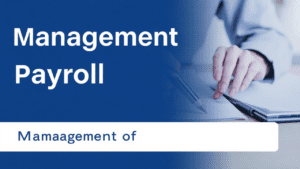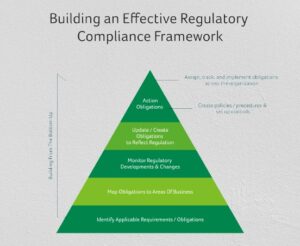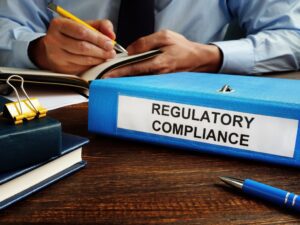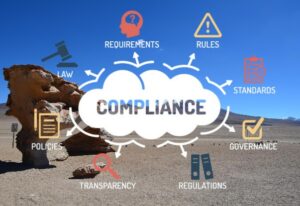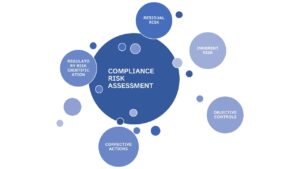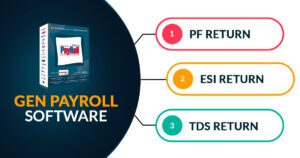Effective financial management is critical to the success of any business. One of the biggest decisions companies face is whether to handle accounting in-house or outsource it to a professional accounting service. Both options have their pros and cons, and the right choice depends on the business’s size, industry, and financial…
Expanding a business into international markets presents exciting growth opportunities but also comes with a host of legal challenges. From regulatory compliance to tax laws and intellectual property protection, businesses must navigate a complex legal landscape to ensure smooth operations in foreign jurisdictions. Understanding these legal considerations and seeking assistance…
In today’s competitive business landscape, startups face numerous financial challenges that can impact their growth and sustainability. From securing investor confidence to ensuring regulatory complianceF, financial transparency is a critical aspect of a startup’s success. This is where assurance services come into play, offering a structured approach to validating financial information,…
In today’s fast-paced and innovation-driven world, intellectual property (IP) has become one of the most valuable assets for businesses. Whether it’s a groundbreaking invention, a unique brand identity, or creative content, protecting your IP is crucial for maintaining a competitive edge. However, navigating the complexities of IP law can be…
Running a small business is no small feat. From managing operations to driving growth, entrepreneurs wear multiple hats to keep their businesses afloat. Amidst these responsibilities, accounting often becomes a time-consuming and complex task. However, with the rise of business process outsourcing services, small businesses can now delegate their accounting needs…
In today’s complex and highly regulated business environment, maintaining financial integrity is more critical than ever. Businesses, whether small startups or large corporations, must ensure that their financial statements are accurate, transparent, and compliant with regulatory standards. This is where audit and assurance and attestation service come into play. These services not only help…
Trademarks are essential assets for businesses, as they help distinguish goods and services in the marketplace. Once a trademark is registered, it offers legal protection, safeguarding your brand’s identity from infringement. However, obtaining a trademark is just the first step. To ensure continued protection, it’s crucial to maintain and renew…
Trademarks are essential for protecting a brand’s identity, and while most people associate trademarks with logos, brand names, or slogans, there are other unique types of trademarks that businesses can register. Unconventional trademarks include sound marks, color marks, and scent marks—each playing a crucial role in brand recognition. In this…
Intellectual property (IP) protection is essential for businesses, inventors, and creators. However, with different types of IP protections available, it can be challenging to determine which one is best suited for your needs. The three primary forms of intellectual property protection are trademark registration, copyright, and patents. Each serves a different…
When registering a trademark, selecting the correct class is one of the most crucial steps. Trademarks are classified into different categories based on the type of goods or services they represent. This system, known as the Nice Classification (NCL), helps businesses and legal authorities organize trademarks systematically. Choosing the right trademark…
Introduction Trademarks play a crucial role in protecting brand identity, ensuring product authenticity, and maintaining consumer trust. While traditional trademarks protect individual businesses and their unique identifiers, there are two specialized types of trademarks that serve broader purposes: Collective Marks and Certification Marks. These marks are essential for industries, associations, and regulatory…
In an increasingly globalized world, businesses are no longer confined to a single market. Whether you’re an entrepreneur, a startup, or a well-established corporation, expanding your brand internationally comes with both opportunities and risks. One of the most crucial aspects of global expansion is ensuring your brand is legally protected…
In the world of branding, a trademark is more than just a legal formality—it’s the face of your business. It’s what customers recognize, trust, and associate with your products or services. But did you know there are different types of trademarks, each serving a unique purpose? From word marks and logos…
In India, a trademark is more than just a logo or a brand name—it’s a valuable asset that distinguishes your business from competitors and builds trust with customers. Whether you’re a startup, small business, or established enterprise, registering your trademark is essential to protect your brand identity. This guide provides…
In today’s competitive business landscape, your brand is your most valuable asset. It’s what sets you apart from competitors, builds customer loyalty, and communicates your values. But how do you ensure no one else can copy or misuse your brand’s name, logo, or slogan? The answer lies in trademark registration.…
Payroll Compliance Practitioner: A Vital Role in Business Success In today’s complex regulatory landscape, businesses face increasing challenges in maintaining payroll compliance. Ensuring adherence to tax laws, labor regulations, and statutory filings is critical to avoiding penalties and maintaining trust with employees and stakeholders. This is where a Payroll Compliance…
Streamlining Annual Information Return with Advanced Payroll Services and Solutions Managing annual information returns is a critical aspect of payroll compliance for businesses in India. Ensuring accurate filing and timely submission of annual returns helps businesses avoid penalties and streamlines payroll processes, keeping employee compensation in check. The right payroll…
Management of Payroll. Payroll is a critical function in any business, ensuring that employees are compensated accurately and on time. Proper management of payroll involves processing wages, calculating taxes, handling employee benefits, and ensuring compliance with labor laws. Whether you run a small startup or a large enterprise, managing payroll…
Methods of Paying Wages: A Comprehensive Guide for Businesses Payroll is an essential part of running any business, ensuring that employees are compensated accurately and on time. However, the methods of paying wages can vary depending on the size of the business, employee preferences, and the technological capabilities available. Businesses…
Best Indian Payroll Software: Guide for Small Businesses Managing payroll efficiently is crucial for businesses of all sizes in India. Whether you run a small startup or a large enterprise, having reliable payroll software is essential to ensure accurate employee compensation, timely tax filings, compliance with labor laws, and streamlined…
Payroll Services Near Me: What to Look for in a Reliable Provider In today’s dynamic business landscape, payroll management plays a critical role in ensuring smooth operations and employee satisfaction. As companies expand and grow, managing payroll efficiently becomes more complex, making payroll services a necessity for smooth business functioning.…
Payroll Outsourcing Companies: Transforming Payroll Management for Businesses Payroll is a critical function of any business, yet it can be time-consuming, complex, and prone to errors if not handled efficiently. This is where payroll outsourcing companies step in, offering expertise and streamlined solutions to manage payroll effectively. By outsourcing payroll,…
Payroll and Compliance: Ensuring Smooth Business Operations Managing payroll is a crucial aspect of running any business. However, ensuring compliance with tax laws, labor regulations, and other statutory requirements adds a layer of complexity to payroll management. This is where effective payroll and compliance management comes into play, helping organizations…
The Role of Payroll Management in Simplifying Employee Payroll Tasks In today’s fast-paced business environment, managing employee payroll efficiently is critical to the smooth functioning of any organization. Payroll management plays a pivotal role in ensuring timely disbursement of salaries, compliance with tax regulations, and the seamless operation of human…
How Payroll Outsourcing Companies Can Transform Your Business Running a business involves a multitude of responsibilities, and one of the most crucial yet time-consuming tasks is payroll processing. Whether you’re managing a small team or a large workforce, ensuring employees are paid accurately and on time, while complying with tax…
Optimizing Payroll Processing: A Complete Guide to Streamlining Employee Payroll Management Payroll processing is a crucial aspect of every business, ensuring that employees are paid on time and that all financial records comply with legal requirements. It’s not just about cutting checks or transferring funds; payroll processing involves a comprehensive…
How to File a Patent in India? Patents are a cornerstone of intellectual property (IP) rights in Delhi, providing legal protection for innovations and inventions. In India, obtaining a patent ensures that inventors have exclusive rights over their creations, allowing them to control production, usage, and commercialization. Filing a patent…
What are the kinds of Intellectual Property Rights? In today’s knowledge-driven economy, intellectual property rights (IPR) in Delhi play a pivotal role in fostering innovation and protecting the creations of individuals and businesses. These rights ensure that creators can benefit from their work and encourage further investment in innovation. Intellectual…
How to Register a Brand Name in India? Frequently Asked Questions (FAQs) on How to Register a Brand Name in India What is a brand name, and why should I register it in India?A brand name is a unique identifier for your business, used to distinguish your products or services…
How to Register a Trademark in India: A Comprehensive Guide When it comes to safeguarding your brand identity, registering a trademark is one of the most important steps you can take. Trademarks are a crucial part of intellectual property rights (IPR), as they allow businesses to protect their logos, names,…
Procedure for Registration of Copyright What is Copyright? Before diving into the copyright procedure, it’s essential to understand what copyright is. Copyright is a form of intellectual property that provides creators with exclusive rights to their original works. This includes the right to copy, distribute, perform, or display the work…
Copyright: Definition and Example In today’s digital age, copyright plays a crucial role in protecting the rights of creators, ensuring that their intellectual property is safeguarded. Whether you are a writer, musician, artist, software developer, or business owner, understanding copyright law is essential. In this blog post, we will explore…
What is Intellectual Property Rights? In today’s fast-paced and innovation-driven world, intellectual property rights (IPR) in Delhi have emerged as a cornerstone for protecting creativity and innovation. These rights serve as legal safeguards that grant creators and inventors exclusive control over their intellectual creations, fostering an environment that encourages innovation…
Achieving Regulatory Compliance: Checklist for Small and Medium Enterprises (SMEs) For small and medium enterprises (SMEs), achieving regulatory compliance is both a challenge and a necessity. While large corporations often have dedicated departments to handle compliance, SMEs may struggle with limited resources, personnel, and expertise. Yet, compliance remains critical for…
How Technology is RevolutionizingRegulatory Compliance Management Regulatory compliance management has long been a cornerstone of organizational governance, ensuring adherence to laws, standards, and ethical practices. Traditionally, managing compliance involved manual processes, extensive paperwork, and time-consuming audits. However, technology is revolutionizing the compliance landscape, streamlining processes, enhancing accuracy, and reducing costs.…
Regulatory Compliance Audit Program: Framework, Best Practices, and Examples A regulatory compliance audit program is a systematic plan designed to assess an organization’s adherence to applicable laws, regulations, and industry standards. It forms the backbone of a robust compliance strategy by establishing a structured approach to audits. This article offers…
Regulatory Compliance Audit Report: Format, Examples, and Best Practices A regulatory compliance audit report is an essential document that outlines the findings of an organization’s compliance audit. It serves as a comprehensive record of the audit process, highlighting areas of compliance, non-compliance, and recommendations for improvement. This article explores the…
Regulatory Compliance Audit Checklist: Your Complete Guide to Staying Compliant In today’s complex regulatory environment, businesses across industries face stringent compliance requirements. A regulatory compliance audit checklist serves as a critical tool for organizations to ensure they adhere to relevant laws, standards, and regulations. This article provides a comprehensive guide…
Navigating Healthcare Regulatory Compliance: Challenges and Solutions Healthcare is one of the most heavily regulated industries worldwide. Ensuring compliance with a myriad of laws and regulations is essential for delivering safe, ethical, and effective patient care. However, navigating the complexities of healthcare regulatory compliance poses significant challenges for providers, administrators,…
The Difference Between Internal andExternal Compliance Audits In today’s regulatory-driven world, compliance audits are essential for ensuring organizations adhere to legal, ethical, and industry-specific standards. These audits fall into two categories: internal and external. Understanding the distinctions between them is crucial for businesses aiming to maintain transparency, mitigate risks, and…
Labour Law Compliance: Ensuring a Fairand Legal Workplace Labour law compliance is a cornerstone of maintaining a fair and legally sound workplace. It governs the relationship between employers, employees, and the government, ensuring equitable treatment for workers while safeguarding employers from legal repercussions. For organizations of all sizes, understanding and…
Financial Regulatory Compliance: Safeguarding Against Risks and Penalties In today’s complex financial landscape, adhering to regulatory compliance is not merely an option but a necessity. Financial institutions operate under the watchful eyes of regulatory authorities, which enforce rules designed to maintain the stability of the financial system, protect consumers, and…
Environmental Compliance Services in Delhi: Importance and Best Practices In today’s rapidly evolving regulatory landscape, environmental compliance has become a critical consideration for businesses worldwide. With growing awareness of climate change, resource depletion, and ecological degradation, governments, organizations, and individuals are increasingly emphasizing sustainable practices. This blog delves into the…
Types of Regulatory Compliance in Delhi: Key Categories Every Business Should Know In today’s complex business environment, regulatory compliance services in Delhi is not just a legal requirement but a cornerstone of responsible and sustainable operations. Regulatory compliance refers to adhering to the laws, regulations, guidelines, and specifications relevant to…
egulatory compliance consulting firm in delhi in Delhi: Regulatory Compliance: A Guide for Businesses in Delhi In today’s business landscape, regulatory compliance is not just a buzzword—it’s a necessity. As organizations strive to expand and innovate, adhering to legal and regulatory frameworks becomes essential to ensure ethical operations and avoid…
Managerial Audits: A Guide to Governance, Risk Management and Compliance A managerial audit in Delhi is an essential tool for modern businesses aiming to improve efficiency, enhance productivity, and ensure all managerial functions align with organizational goals. It goes beyond traditional financial audits by focusing on evaluating the effectiveness and efficiency…
Payroll Services for Small Business in Delhi Managing payroll can be a challenging task for any business, but small businesses in particular often struggle with the complexities of payroll processing. The need for accurate salary calculations, tax deductions, compliance with labor laws, and employee benefits management can consume a significant…
Streamlining Payroll with Payroll Outsourcing Services in Delhi Managing payroll is one of the most critical yet complex functions of any business. As businesses in Delhi grow and regulations evolve, handling payroll in-house can become increasingly challenging. This is where payroll outsourcing services in Delhi come into play. By outsourcing payroll…
Unlocking the Power of Payroll Services in Delhi: A Comprehensive Guide for Businesses Managing payroll is a critical aspect of running a business, but it can also be one of the most time-consuming and complex tasks, especially for businesses in a bustling city like Delhi. Ensuring that your employees are…
Regulatory Compliance Consulting Firm in Delhi: Navigating the Complexities of Compliance. In the fast-paced business environment of Delhi, staying compliant with regulatory requirements is critical for the success and longevity of any company. Whether you’re in the pharmaceutical, healthcare, manufacturing, or other highly regulated industries, the need for comprehensive regulatory…
Managerial Audit in Delhi: Ensuring Effective Governance, Risk Management, and Compliance In today’s complex business environment, ensuring proper governance, risk management, and compliance (GRC) is crucial for any organization. A managerial audit helps assess these factors, ensuring that a company operates efficiently, adheres to legal requirements, and follows best practices.…
Top Payroll Services for Small Businesses: A Guide to Choosing the Best Payroll Provider For small businesses, managing payroll can be a challenging task. It involves calculating employee salaries, managing deductions, handling tax withholdings, and ensuring compliance with local labor laws. Errors in payroll processing can lead to significant consequences,…
Understanding Payroll Compliance: How Payroll Outsourcing Services Help You Stay Compliant Managing payroll is one of the most crucial and complex tasks for businesses, large or small. Beyond ensuring that employees are paid on time, businesses must also navigate a maze of regulatory requirements and tax laws, collectively referred to…
Payroll Software’s for Small Businesses: What you need to know before choosing the Best Solution Managing payroll is one of the most critical functions in any business. For small businesses, it can be particularly challenging due to limited resources and manpower. Ensuring timely and accurate payroll processing is essential for…
Salary disbursement Methods: Exploring different ways to Pay Employees and ensure Compliance Salary disbursement is a fundamental part of any organization’s payroll process. The method in which employees receive their salaries not only affects operational efficiency but also plays a critical role in ensuring compliance with regulatory and legal frameworks.…
What is GRC? Understanding Governance, Risk, and Compliance In the complex world of modern business, maintaining a strong, cohesive framework for managing governance, risk, and compliance (GRC) is critical. Organizations face a multitude of challenges that span across regulatory requirements, ethical practices, operational risks, and strategic objectives. These challenges require…
Risk assessment is the overall process of Identifying, Evaluating and Managing Potential Risks 10 FAQs on “Risk Assessment is the Overall Process of Identifying, Evaluating, and Managing Potential Risks” 1. What is risk assessment?Risk assessment is the overall process of identifying, evaluating, and managing potential risks that could negatively impact…
What is the First Step in a Risk Assessment? Risk assessment is a critical element in the broader process of risk management. It involves identifying, analyzing, and responding to potential risks that could affect an organization’s ability to achieve its objectives. Among the many steps involved in a full risk assessment,…
In an increasingly complex and uncertain business landscape, effective risk management has become a fundamental part of organizational strategy. The ability to identify, assess, and mitigate risks can significantly influence a company’s long-term success, regardless of its size or industry. Whether it’s navigating regulatory changes, financial uncertainties, cybersecurity threats, or…
Top Tips for Efficient and Error-Free Payroll Processing Automate Payroll Systems:Implement payroll software to automate calculations, deductions, and tax withholdings. Automation reduces manual errors, speeds up processing, and ensures consistency. Regularly Update Employee Information:Keep employee records current with accurate personal details, tax information, and payment preferences. Regular updates help avoid…
Understanding Payroll Services for Small Business in Delhi Payroll services play a crucial role in managing employee payments, tax deductions, and ensuring compliance with labor laws. For businesses of all sizes, managing payroll accurately and efficiently is vital, as it directly affects employee satisfaction, legal compliance, and overall operational efficiency.…
A risk assessment is a systematic process for identifying, evaluating, and prioritizing risks associated with an activity, process, or organization. It involves: Identifying Risks: Determining what could potentially cause harm or problems. This might include hazards, threats, or vulnerabilities. Analyzing Risks: Evaluating the likelihood and impact of identified risks. This…
What is a Compliance Audit? A compliance audit is a formal, systematic review process designed to assess whether an organization is adhering to relevant laws, regulations, policies, and industry standards. This type of audit is crucial for ensuring that an organization operates within the bounds of legal and ethical frameworks,…


















